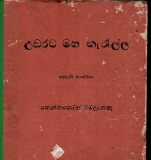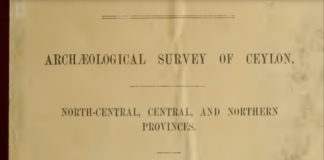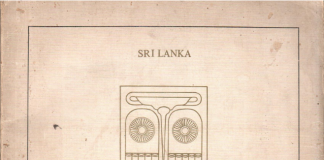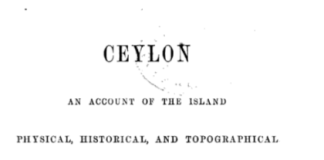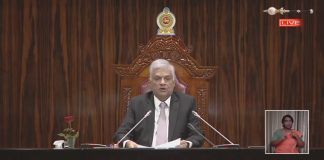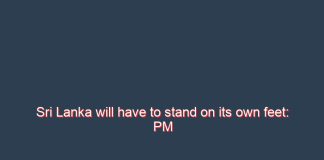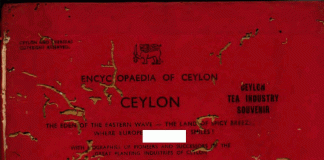lanka
Udarata Maha Karalla
ලෝ වැඩ සඟරාව Loweda Sangarawa
Report on the archaeological survey of Ceylon 1905
An Account of the Island of Ceylon
Sri Lanka – Caluwadewage Cyril Mathew
Ceylon – An Account of the Island
The British intrigue in the Kingdom of Ceylon
ජනාධිපති රනිල් වික්රමසිංහ පළමු පාර්ලිමේන්තු සැසිවාරය විවෘත කරමින් සිදුකළ සම්පුර්ණ ප්රකාශය
Sri Lanka will have to stand on its own feet: PM
ECONOMYNEXT – Sri Lanka will have to stand on its own feet Prime Minister Ranil Wickremesinghe as the country ran out of fuel due to forex shortages coming from a soft-peg destabilized by money printed mis-target interest rates.
“We have to come out of this situation,” Prime Minister Wickremesinghe said in a video statement. “But we have to come out by our own efforts.
“Others have no obligation to rescue us. If get up on our own efforts we can go further. But we cannot go on the current system.”
Sri Lanka now has a large public sector and a soft-pegged central bank which prints money to mis-target interest rates, triggering monetary instability and currency depreciation.
“There is a view among some that that they not getting the value for their dollars,” Wickrmesinghe said.
“That is why some remmittances are coming through Undiyal system. Some others are keeping their money abroad without sending.
Such phenomena is known as a loss of credibility of a pegged exchange rate.
When the credibility of the peg is lost, the currency has to be floated and interventions to maintain a a peg abandoned (a suspension of convertibility) and money printing halted.
To stabilize the exchange rate the domestic economy has to be smashed by killing private credit through high rates and monetary financing of the budget has to be halted through tax hikes and sales of Treasury bills to real buyers and not the central bank.
An International Monetary Fund program usually does that. Sri Lanka has gone to the IMF 17 times since a non-credible peg was set up in 1950.
Sri Lanka set up a non-credible with money printing powers in the style of Argentina’s central bank in 1950, abolishing a currency board or credible peg which had kept the economy stable through a Great Depression and two world wars.
The Great Depression was a crisis in the Gold Standard ares triggered mostly by the US Fed.
Wickremesinghe said Sri Lanka is facing the worst crisis in modern times.
Sri Lanka has faced big crisis in 1869 over the collapse of the coffee industry.
“At the time the crisis was limited to Colombo, Kandy and Galle and most people were in rural areas,” Wickremesinghe said.
Sri Lanka also faced a big crisis in 1884 when also commodity prices collapsed. There was a banking crisis in the silver area at the time and a Eastern and Oriental Bank, which was among several banks that were issuing money in the country closed their doors.
The banks had loans in silver (rupees) and borrowings in sterling (gold) amid bad loans in troubled coffee plantations.
Colonial authorities set up the currency board at the time as a separate agency with the Ceylon Rupee having fallen to as much as 50 percent. (Colombo/June30/2022)
